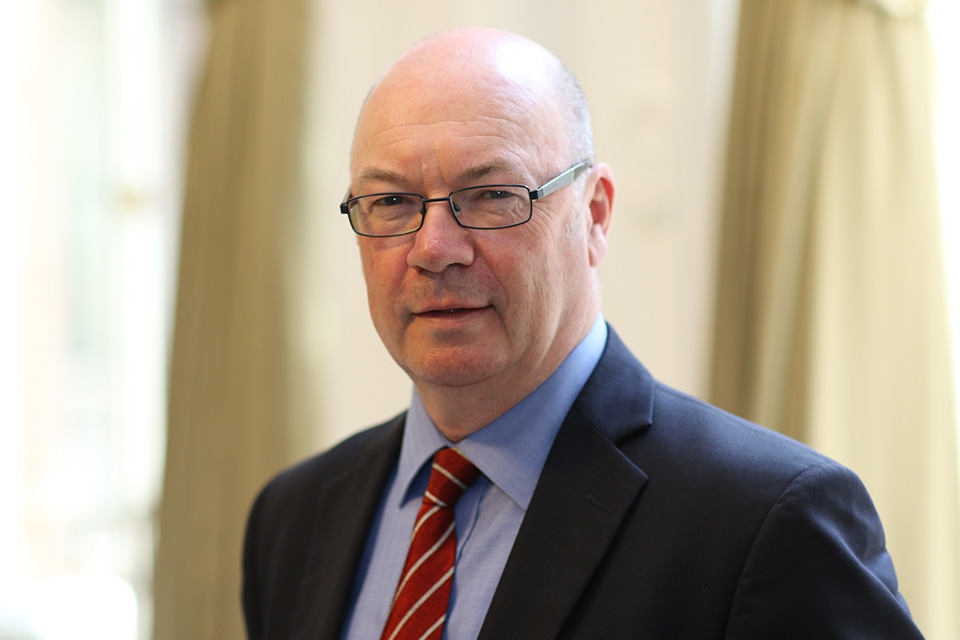Iran sanctions: Foreign Office Minister Alistair Burt speaks to BBC Radio 4
Foreign Office Minister Alistair Burt speaks to BBC Radio 4 on the United Nations sanctions against Iran

Eddie Mair (EM): With more on the decision in the past hour of the UN to impose fresh sanctions on Iran I’m joined by the Foreign Office Minister responsible for combating nuclear proliferation, Alistair Burt. Thank you for joining us.
Alistair Burt (AB) Foreign Office Minister: Okay.
EM: What do you expect these sanctions to achieve that the previous three sets of sanctions imposed by the UN have I presume failed to achieve?
AB: Well this resolution today sends a very strong signal that Iran’s continued failure to comply with its international obligations just can’t be ignored. What the set of sanctions do today is they broaden and deepen the sanctions that have been applied before and what I think it does for Iran is indicate to them that they can not permanently go on ignoring world opinion and what we expect to happen at the end of this we are expecting Iran to listen to what the rest of the world is saying and to be open and honest about its nuclear programme.
EM: But very similar things were said the last three times sanctions were imposed.
AB: But this is a toughening and a strengthening of sanctions.
EM: Well each one is a toughening.
AB: Each one is a toughening and the world will go on toughening its sanctions until Iran shows clearly that it’s going to listen and it’s going to be prepared to be open about its programme and each one makes it more difficult for Iran to carry on in the community of nations. The, the strength of this resolution is the fact that all the Permanent Members of the Security Council voted for it. It’s a very determined statement by the United Nations and it does show that walking away from negotiations and not being prepared to take part in negotiations is not a result that Iran is going to be able to rely, rely upon.
EM: Is it possible that three failures indicate that sanctions isn’t the best policy?
AB: I’m, I’m not sure it’s necessary to talk about any failures. This is a continuing process to try and get Iran to the negotiating table. We’ve always made it very clear that as long as, as well as the sanctions there is a dual track process which is, which encourages Iran to talk about their nuclear programme. There’s been a very clear offer from the European Union, from Cathy Ashton, on the table since last October when Iran actually made a commitment that it would enter in to negotiations about its nuclear programme. It’s refused to do so, so that you should see the process as a continuing one designed to get Iran back to the negotiating table to be honest and open about its nuclear programme and that’s what this is designed to do today.
EM: These sanctions will put a stop to a deal agreed only last month in which Iran would give low enriched uranium to Turkey in return for reactor fuel.
AB: Well there is no reason in the sanctions, in the resolution for that to be the case. We made it very clear at the time that although the deal had some positive aspects the whole point was Iran was still not being open about its nuclear programme.
EM: But you’ve just been complaining that Iran wasn’t entering seriously in to negotiations …
AB: That’s quite right and it’s not doing so.
EM: … and, and presumably the deal that Brazil helped broker was, was a serious negotiation.
AB: No, it wasn’t. Iran knows that what the world needs to do is to find out about its nuclear programme and that opportunity has been available to Iran all the time, and still is. Anything it seeks to do to try and detract from that or draw attention away from the fact that it’s not being open about its nuclear programme is not what the world needs and the fact that the UN has taken the action it has today and that the Security Council acted in the way it has done is an indication that it’s not going to be, it’s not going to be traded off by anything that Iran might do unless it’s prepared to be open and honest about its programme, which is by far the most important thing that it must do.
EM: Does this new Government rule out any action against Iran?
AB: We’re firmly committed to a diplomatic track. We’re firmly committed to using all the diplomatic weapons at our disposal and using UN …
EM: Understood, but do you rule out any action against Iran?
AB: We believe that diplomatic pressure will pay off.
EM: Alistair Burt, thank you.